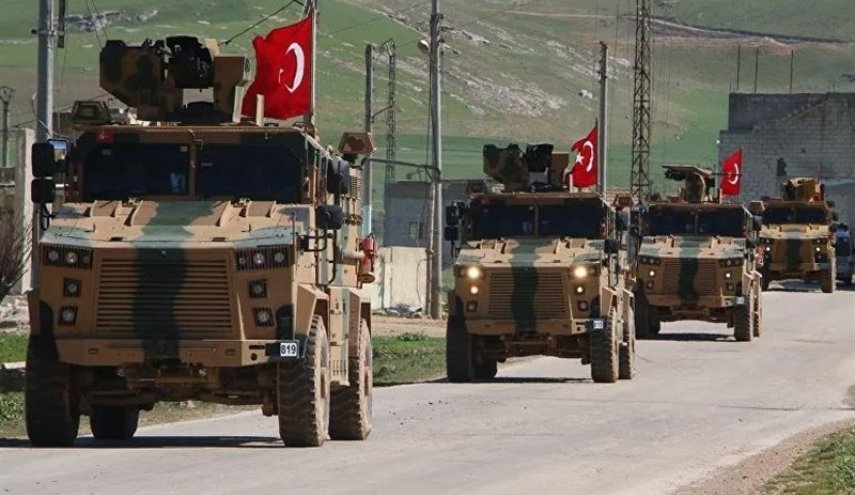Farzad Poursaid, speaking in an interview with the website of the Strategic Council on Foreign Relations, referred to the attacks of the Turkish army and the bombing of areas in northern Iraq during the Operation Claw-Lock against Kurdish militias in the region and said: An important part of Turkey’s objectives in this military, political operation is to gain access to the gas lines in those areas.
Saying that after the Ukraine war, gas supplies were tied to international security and Turkey’s vulnerabilities became apparent, he noted: About 15 percent of Turkish gas imports depend on Iran and the other 45 percent comes from Russia.
The expert on Iraq affairs said: Last winter, Iran’s gas exports to Turkey were cut off for a week, and Turkish factories and facilities consuming the gas were faced with closure and unemployment. Iran said it had a domestic gas deficit of 250 million cubic meters, and that figure seems to increase this year.
Turkey seeking gas resources in north Iraq, the Zionist regime
Poursaid added: By 2026, the 15-year contract for the export of Iran’s gas will expire, and given the current situation and lack of investment by Iran in this area, Turkey can no longer count on the Iranian gas and in fact does not want to do so. On the other hand, given NATO’s emphasis on the need to reduce Europe’s dependence on Russian gas, one of the countries that will be exposed to this Western demand is Turkey. For this reason, they have decided to take action regarding the gas resources of the Kurdistan Region and the gas explorations that have taken place in the two large offshore gas fields of “Tamar” and “Leviathan” under the control of the Zionist regime.
He continued: The Zionist regime has announced that the 12 billion cubic meters that will be extracted from those two fields will reach 21 billion cubic meters next year. Turkey wants to connect the gas resources of those two fields to the gas pipeline in north Iraq and from there to Europe to meet its needs as well as those of Europe. This is an issue that the United States, Europe, the Zionists, and the Kurdistan Region of Iraq and Turkey are looking for, and is very important to them. In this case, Turkey will become a major gas pipeline in the region.
Poursaid referred to Massoud Barzani’s visit to Turkey, one day before the start of the “Claw-Lock” military operation and his meeting with Erdogan, and said: The US Deputy Secretary of State for the Middle East also paid a visit to Erbil and held talks with regional officials of the Region two days before the start of the military operation in order to prepare the necessary coordination for the attacks. However, officials of Turkey and the Regional believe that forces stationed in those areas may also be exposed to the influence of Russia; therefore, they are one of the most important obstacles to the transfer of gas pipelines.
Zionist regime’s entry into gas supply of Turkey, Europe
The expert on Iraq affairs added: With the entry of the Zionist regime into gas supply, we will be witness to more clashes and further security-military presence of the Zionist regime in the region, which will be more guaranteed by Europe and the United States than before. On the other hand, the military and security ties between Turkey, the Republic of Azerbaijan and the Kurdistan Region with the Zionist regime will have an economic dimension.
A blow on Russian economy
He described such developments as a major blow on the Russian economy” and said: This will make the Russians more focused on Asian powers, especially China and India, for exports more than before.
Poursaid cited the connection of those energy pipelines as a factor in increasing pressure on Russia and in realization of the objective of Europe and the United States to turn Russia from a Eurasian power to an Asian power, adding: If they succeed, Russia will gradually become a purely Asian power in the next decade.
The member of the faculty of the Research Institute for Strategic Studies commenting on the positions of Iraqi political groups on the measures of the Kurdistan Region and the Turkish military operation in north Iraq stated: The military-security equations of the last decade have been shaped in such a way that they largely separate equations of the Region from Iraq and are not strongly influenced by each other. Since the Iraqi government and the nationalists are seeking some form of national and nationwide sovereignty, and come to power with such a slogan, they will formally take a stand against those movements, but in practice the Iraqi government cannot exercise its sovereignty easily over its entire territory.
He continued: Inside Iraq, militant and non-governmental movements, especially the clergy and the Islamists, will definitely take a stand against those equations and relations due to their opposition to the presence of the Zionist regime in the region, but they do not seem to be able to take effective measure to prevent such actions.
However, Poursaid, referring to some analysis on the possibility of the efforts of Kurdistan Region to achieve complete secession from Iraq, said: Given the changes in the international system, regional powers and the United States still do not agree with the independence of Kurdistan, and this issue does not have a favorable international context. In addition, according to the ruling of the Iraqi Supreme Court banning the sale of oil and gas by the Kurdistan Region, the Region will try to obtain the consent of the Iraqi central government by allocating a percentage of the corresponding revenues to the government budget or giving some concessions to the Iraqi government.










0 Comments